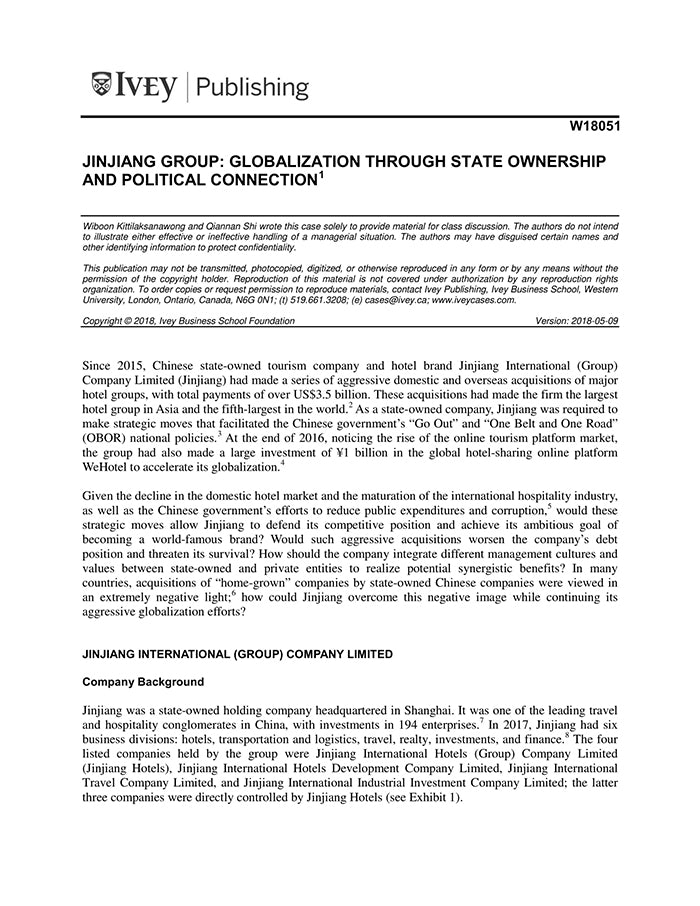Jinjiang Group: Globalization Through State Ownership and Political Connection
受取状況を読み込めませんでした
Since its founding in 1951, Chinese state-owned Jinjiang International (Group) Company Limited (Jinjiang) had become a leading international company in the travel and hospitality industry with business divisions in hotels, transportation, travel, realty, investments, and finance. The Jinjiang brand was well-known in China, and the group had been pursuing a conservative investment approach. However, in response to the Chinese government's "Going Global" and "One Belt and One Road" policies, and in order to strengthen the firm's international competitiveness, Jinjiang made a series of aggressive mergers and acquisitions between 2014 and 2016. The acquisitions-especially those of two large hotel groups-had worsened Jinjiang's debt position, while integration was proving difficult due to the acquired firms' different corporate cultures and values. The hospitality market was also becoming mature and highly competitive; host-country governments were increasingly wary of foreign state-owned companies acquiring domestic assets. How could Jinjiang overcome these challenges to achieve its aspiration of building a world-class brand, while fulfilling the Chinese government's political agendas through a series of aggressive globalization efforts? Wiboon Kittilaksanawong is affiliated with Saitama University. Qiannan Shi is affiliated with Nagoya University of Commerce & Business.
【書誌情報】
ページ数:14ページ
サイズ:A4
商品番号:HBSP-W18051
発行日:2018/1/23
登録日:2018/4/12


